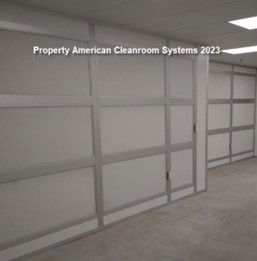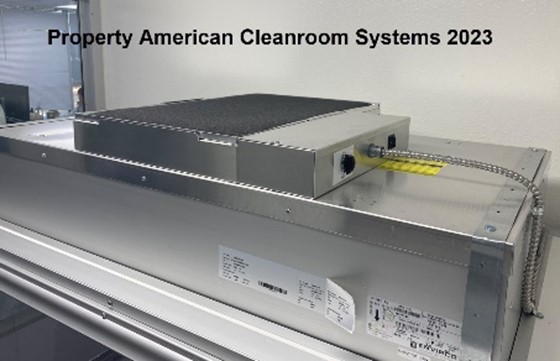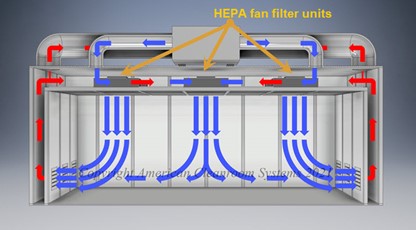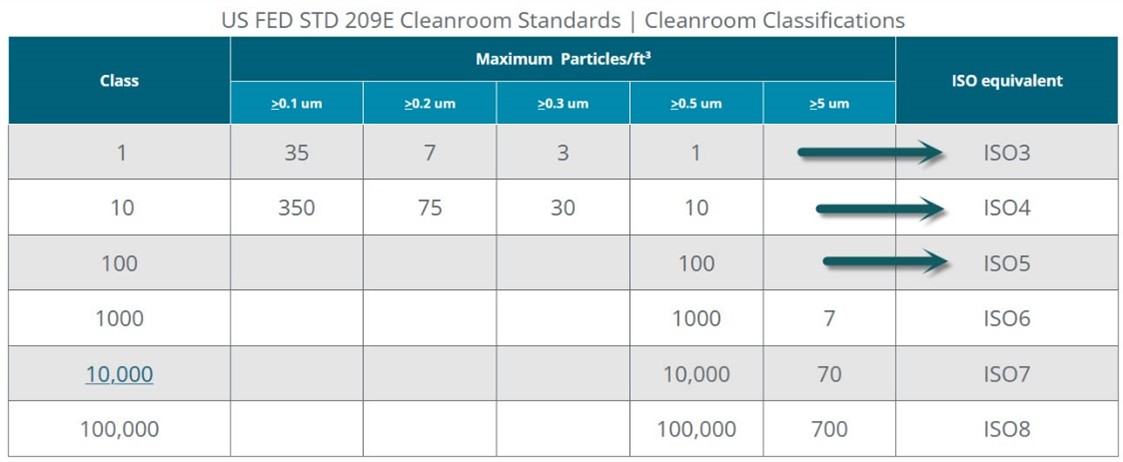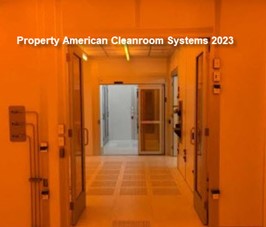HEPA and ULPA filters are used by the cleanroom industry to filter the air and remove particulates creating super clean spaces which range from ISO-3 to ISO-8 or class 1 to class 100,000. HEPA filters are most common in the industry while ULPA filters are typically only used in ISO-5 / class 100 or higher cleanrooms.
Per the Federal government, Environmental Protection Agency HEPA is:
“an acronym for "High Efficiency Particulate Air [filter]" (as officially defined by the U.S. Dept. of Energy). This type of air filter can theoretically remove at least 99.97% of dust, pollen, mold, bacteria, and any airborne particles with a size of 0.3 microns (µm).”
ULPA stands for Ultra Low Particulate Air. ULPA filters are denser than HEPA filters, so they are 99.999% effective at removing particules 0.12-micron diameter or larger.
Both HEPA and ULPA filters are typically used in fan filter units or duct ceiling modules mounted in the cleanroom plenum.
ULPA filters are used because they have more dense filter media than HEPA filters. This allows them to catch more particles and catch the smaller particles. However, this capability comes with a many disadvantages:
ULPA filters disadvantages:
- ULPA filters are higher cost than HEPA filters. This raises the cost of the cleanroom.
- ULPA filter pass less air thru same area as HEPA filters so cleanrooms require more ULPA filters to get same number of air changes per hour. This raises the cost of the cleanroom.
- ULPA filter have greater pressure drop across the filter medium than HEPA filters so they require larger fan and more energy to filter the air. This increases the cleanroom electrical usage and requires more air conditioning.
- ULPA filters have shorter lifetime than HEPA filters as they clog faster. This increased cleanroom maintenance cost.
People use ULPA filters instead of HEPA filters in their cleanroom when they need the highest cleanroom classifications: ISO-3 (class 1) , ISO-4 (class 10), ISO-5 (class 100). The most common application is cleanrooms for semiconductor manufacturing.
Summary
HEPA filters are most common filtration used for cleanrooms. ULPA filters are denser meaning they allow less particles to get thru the filter and catch smaller particles. HEPA filters catch 99.97% of particles at 0.3u. ULPA filters catch 99.999% of particles at 0.12u. ULPA filters cost more, are less efficient and don’t last as long as HEPA filters so they are only used on the highest classification cleanrooms.

